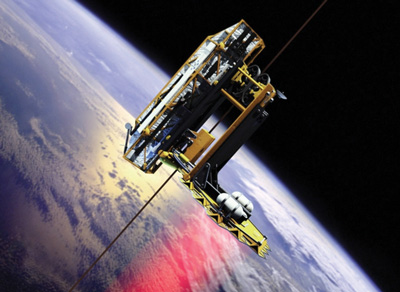by Markus Klettner, Benoît Michel and Bradley Edwards
EuroSpaceward is a brand new European Association created by scientists believing in space exploration and settlement as a way to preserve the human civilization.
It does not require an extraordinary clairvoyant ability, in order to understand that our modern civilization can only survive and prosper on a long-term basis, if it succeeds to lastingly solve its inherent burning problems, like the irreparable destruction of natural habitats, the depletion of valuable raw materials of mother Earth, the ever increasing need for energy, or the potential devastating climatic changes induced by a polluting world economy.
This is where the European Spaceward Association (short: EuroSpaceward), a non-profit organization established in Luxembourg in March 2007 and a liaison-partner of the Spaceward Foundation in the United States, intends to make its contributions.
The non-profit association's main purpose is the promotion and dissemination of activities at European universities and European schools, in the public and in economy that are aiming at sensitizing to the need for the sustainable industrialization and settlement of space to preserve the planet Earth as well as the safeguarding of its biosphere and diversity of its species including the continuous improvement of the quality and safety of human life.

EuroSpaceward also engages in the introduction and coaching of development teams at European universities, technical and scientific centres aiming at the participation in the publicly accessible space programs that support the overall mission of facilitating the industrialization and the settlement of space, like Elevator2010, NASA Beam Power and Tether Challenge, Mars Barn, Regolith Excavation Challenge, publicly open ESA projects, etc.
The flagship project of EuroSpaceward is focused on the Space Elevator; a concept for inexpensive and safe travel from Earth to space that only recently has been considered viable. By utilizing state-of-the-art technology, a ribbon can be strung between an anchor on Earth and a satellite beyond geosynchronous orbit. This ribbon will be ascended by mechanical climbers thereby providing ready access to space without using any rockets. Currently in the engineering stages this concept has attracted considerable interest internationally and has been the focus of international conferences and engineering competitions in the United States to promote development of the required technologies. With the assistance of EuroSpaceward researchers and engineers in Europe are now beginning to take active roles in this endeavour.
Having been awarded with a grant by the Fond National de la Recherche of Luxembourg, EuroSpaceward is now in the position to organize the first European Space Elevator climber design workshop in cooperation with the University of Luxembourg and the Institute Gabriel Lippmann as well as with the Centre Spatial de Liège, the University of Liège and the Université Catholique de Louvain. The workshop is planned to last 3 days and will bring together high level researchers and engineers on Space Elevator Systems along with private industry to examine and develop designs for climbing systems and elevator tethers that can excel at NASAs Beam Power and Tether Challenge and move the technology development forward. The participants and session leaders are the world leaders in this work and the workshop should result in a strong advancement in climber and tether design.
Link:
http://www.eurospaceward.org/
Please contact:
Markus Klettner
EuroSpaceward Association
E-mail: Markus.Klettner![]() alumnimail.isunet.edu
alumnimail.isunet.edu










